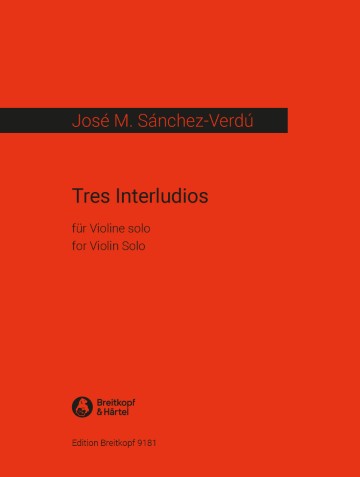Sospiri Op. 70
Adagio

| Product Code: | 979-0-004-82094-0 |
| ISMN: | 979-0-004-82094-0 |
| Publishers Number: | EB 3990D |
| Condition: | New |
Edward Elgar, is one of the most significant figures in English classical music. Born on June 2, 1857, in Lower Broadheath, Worcestershire, his ascent from relatively modest origins (his father was a piano tuner and music dealer) to become internationally famous, and in many ways synonymous with the Remembrance Day commemorations, is a fascinating story of talent and perseverance. Although largely self-taught and emerging from humble beginnings Elgar developed a distinctive musical voice that captured the spirit of his era, crafting bold melodies and rich harmonies that resonated deeply with audiences both in Britain and abroad.
A turning point in his career came with the composition of the Enigma Variations in 1899. This innovative work, built on a mysterious underlying theme that continues to invite debate, established his reputation and showcased his ability to weave personal and musical narratives into a compelling tapestry. Equally celebrated are his Pomp and Circumstance Marches, which have evolved into cultural staples—often associated with significant national ceremonies—and his profound choral masterpiece, The Dream of Gerontius, whose ambitious structure and spiritual depth spurred both acclaim and controversy at its debut.
Elgar’s work bridges the grand Romantic tradition and emerging modern sensibilities. His music is marked by a unique fusion: while deeply rooted in the expressive texture of Romanticism, his sound also carries continental influences that positioned him as an outsider in some British musical circles. Despite—or perhaps because of—this, his compositions encapsulate both personal introspection and a defining sense of English identity, influencing not only his contemporaries but also helping to inspire later generations of composers 2.
Beyond the orchestral and choral works for which he is best known, Elgar’s lesser-known contributions, including chamber music and song cycles, offer fascinating insights into his creative range and personal reflections. His story extends beyond music; it is also one of overcoming societal expectations as a devout Roman Catholic in predominantly Protestant England, and of navigating the complexities of class and recognition in the late Victorian and Edwardian eras. His knighthood in 1904 and the lasting esteem afforded to his music underscore a legacy built on innovation, emotional sincerity, and an indefatigable spirit.
Looking further into his influence, it’s intriguing to note that Elgar was among the first composers to see the potential of the gramophone for capturing and disseminating music—a forward-thinking perspective that hints at his lasting impact on modern recording practices. His legacy continues to spark debates and fresh interpretations of his work; modern scholars and conductors frequently uncover new layers in his compositions, reaffirming his status as a timeless artist. If you’re curious about how his personal struggles and societal context informed his creative genius, or if exploring the intricate details behind the “enigma” in his variations interests you, there’s a rich trove of discussion and analysis waiting to be unearthed.
Sir Edward William Elgar, passed away on February 23, 1934, in Worcester, Worcestershire. Elgar is renowned for his contributions to the British and international classical concert repertoire, with famous works including the Enigma Variations, the Pomp and Circumstance Marches, concertos for violin and cello, and two symphonies.
A turning point in his career came with the composition of the Enigma Variations in 1899. This innovative work, built on a mysterious underlying theme that continues to invite debate, established his reputation and showcased his ability to weave personal and musical narratives into a compelling tapestry. Equally celebrated are his Pomp and Circumstance Marches, which have evolved into cultural staples—often associated with significant national ceremonies—and his profound choral masterpiece, The Dream of Gerontius, whose ambitious structure and spiritual depth spurred both acclaim and controversy at its debut.
Elgar’s work bridges the grand Romantic tradition and emerging modern sensibilities. His music is marked by a unique fusion: while deeply rooted in the expressive texture of Romanticism, his sound also carries continental influences that positioned him as an outsider in some British musical circles. Despite—or perhaps because of—this, his compositions encapsulate both personal introspection and a defining sense of English identity, influencing not only his contemporaries but also helping to inspire later generations of composers 2.
Beyond the orchestral and choral works for which he is best known, Elgar’s lesser-known contributions, including chamber music and song cycles, offer fascinating insights into his creative range and personal reflections. His story extends beyond music; it is also one of overcoming societal expectations as a devout Roman Catholic in predominantly Protestant England, and of navigating the complexities of class and recognition in the late Victorian and Edwardian eras. His knighthood in 1904 and the lasting esteem afforded to his music underscore a legacy built on innovation, emotional sincerity, and an indefatigable spirit.
Looking further into his influence, it’s intriguing to note that Elgar was among the first composers to see the potential of the gramophone for capturing and disseminating music—a forward-thinking perspective that hints at his lasting impact on modern recording practices. His legacy continues to spark debates and fresh interpretations of his work; modern scholars and conductors frequently uncover new layers in his compositions, reaffirming his status as a timeless artist. If you’re curious about how his personal struggles and societal context informed his creative genius, or if exploring the intricate details behind the “enigma” in his variations interests you, there’s a rich trove of discussion and analysis waiting to be unearthed.
Sir Edward William Elgar, passed away on February 23, 1934, in Worcester, Worcestershire. Elgar is renowned for his contributions to the British and international classical concert repertoire, with famous works including the Enigma Variations, the Pomp and Circumstance Marches, concertos for violin and cello, and two symphonies.
Edward Elgar's Sospiri Op 70 is one of those brief, highly atmospheric studies that abound in practically all music publishers' catalogues around 1900. This piece,…
Edward Elgar’s Sospiri Op 70 is one of those brief, highly atmospheric studies that abound in practically all music publishers’ catalogues around 1900. This piece, however, owes its survival beyond its time of origin only in part to the unbroken esteem enjoyed by Edward Elgar. The piece contains a number of striking features and is far superior to the mass-produced, sentimental parlor pieces of the time.
Our Price: 8
Digital Download – PDF
Shipping costs: No shipping
Please create and forward a copy of this publication to the customer
You might also like
-
3 Interludios
£17.00 -
3 Pieces for Violin and Piano Op. 116
£21.00 -
3 Romances Op. 22 for Violin and Piano
£19.00 -
3 Romances Op. 94
£10.00




